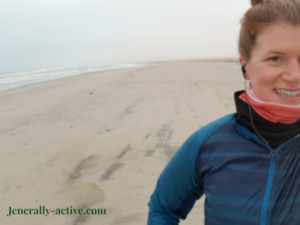Does sport and non-exercise activity make us happier?
My blog is all about active living and traveling.
Why? Because I believe living an active lifestyle can benefit one a lot in many ways, for example, contributing to happiness.
Does Sport make us happy?
People report they do sports to have a balance in life. But why do people feel they need physical exercise to release stress and “free their mind”?
Science found that when we exercise, our body feels stressed. Therefore, our body releases BDNF (Brain-Derived Neurotrophic Factor), a protein that is supposed to act like a reset switch. That’s why we feel like having a clearer mind after exercising and being happy. Further, during aerobic exercise such as running, cycling, or walking out, the body releases endorphins. This hormone has several effects on our brains and body. It reduces our perception of pain and triggers post-workout elation. The big rush usually appears after an hour of exercise.
“The big rush of endorphins usually appear after an hour of exercise.”
During running, this rush is known as the runner’s high and happens after a minimum of 40 minutes of moderate running. But even people who do as little as 10 minutes a day tend to be more cheerful than people who never exercise.
Twenty minutes seem to be the amount to get the best result of endorphins and BDNF release actions within our body when exercising.
In a study of the University of Michigan with as much as 500,000 people among all ethnic, age, and socioeconomic groups, found that exercise is strongly linked to happiness, no matter what type of physical activity. People exercising 30 minutes a few times a week were about 30 percent more likely to consider themselves happy than people not doing as much. Nevertheless, there is a lack of research on the direct link between exercise and happiness.
“People exercising 30 minutes a few times a week were about 30 percent more likely to consider themselves happy.”
In addition to the effects already mentioned above, it seems that people exercising change their social behavior. Especially people participating in group sports seem to be more socially open to connect. That is an additional indicator for people reporting being happy.
People exercising show a higher self-confidence, leading to changes in social relationships that further favor mental health and happiness. Other studies argue that exercise remodels the brain by triggering the creation of new brain cells or changing brain chemicals to contribute to positive emotions.
Does non-exercise physical activity have an effect on happiness?
Lahia and Neal consolidated data collected by The app allowed people to report their happiness. Additionally, the app measured the acceleration of the phone to measure the physical activity of that person.
The researchers found that people being physically active also report being happy. Following the app’s data, people engaging in slightly more physical activity are more satisfied than people who are less physically active. The study includes exercise activity as well as non-exercise activity.
Moreover, happier participants in the study start their days earlier in the morning, have a higher physical activity level, and end their day later in the evening than people reporting lower happiness.
Conclusion
There are lots of arguments and ways of discussing why people who exercise are happy, but what is essential is that they in all studies seem to correlate to happiness. People being physically active throughout the day, even non-exercise activity, associate with both physical health and happiness.
So pick a sport you enjoy and go! No matter if it’s powerlifting, yoga, or running, every kind of exercise triggers processes in the brain and body that contribute to happiness!
“Whatever makes you happy and healthy, do more of!”
There are other effects of sports on our health. Studies, for example, discuss the impact of exercise on sleep, immunity, and depression. These I will comment on in a separate blog post. If you’re eager to find out more in detail, I recommend the books below.
Book Recommendations:
-
The joy of running – Thaddeus Kostrubala
-
Born to Run – Christopher McDougall
Sources:
Lathia, Neal, et al. “Happier people live more active lives: Using smartphones to link happiness and physical activity.” PloS one 12.1 (2017): e0160589.
Zhang, Zhanjia, and Weiyun Chen. “A systematic review of the relationship between physical activity and happiness.” Journal of happiness studies 20.4 (2019): 1305-1322.
Henning Boecker, Till Sprenger, Mary E. Spilker, Gjermund Henriksen, Marcus Koppenhoefer, Klaus J. Wagner, Michael Valet, Achim Berthele, Thomas R. Tolle, The Runner’s High: Opioidergic Mechanisms in the Human Brain, Cerebral Cortex, Volume 18, Issue 11, November 2008, Pages 2523–2531.

